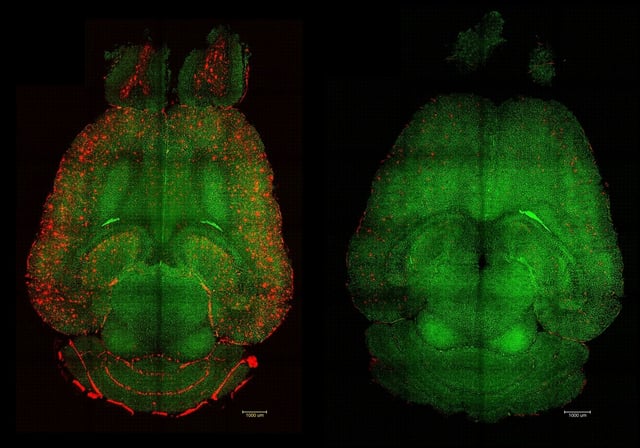Overview
- An IBEC–West China Hospital Sichuan University team reports that three injections of bioactive ‘supramolecular’ nanoparticles reversed symptoms in Alzheimer’s mouse models.
- The study, published October 7 in Signal Transduction and Targeted Therapy, centers on restoring blood–brain barrier and cerebrovascular function rather than directly targeting neurons.
- Authors observed a 50%–60% drop in brain beta‑amyloid within an hour of the first dose and recorded behavioral and memory improvements within days.
- In follow‑up, treated 12‑month‑old mice reportedly behaved like healthy controls six months later, which the team attributes to sustained vascular repair and clearance.
- Researchers describe the particles as mimicking LRP1 ligands to reactivate toxin transport across the barrier, while external experts caution that translation to patients will require replication, toxicology, dose‑finding, and manufacturing work.
